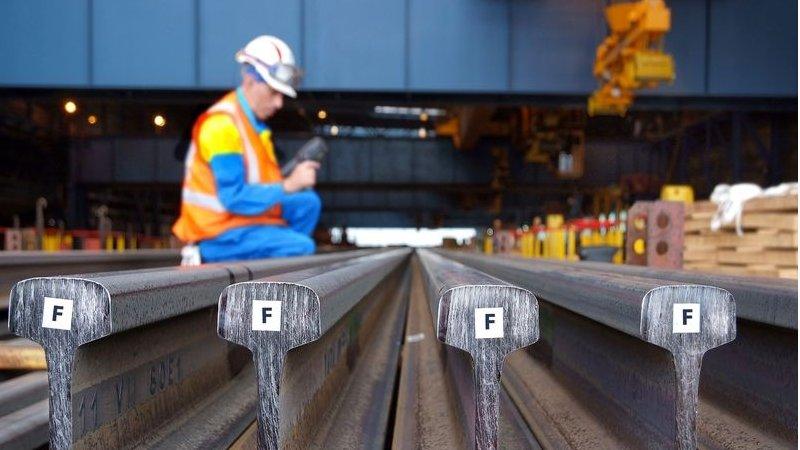Steeling the industry: Tata Steel workers optimistic in Port Talbot
- Published
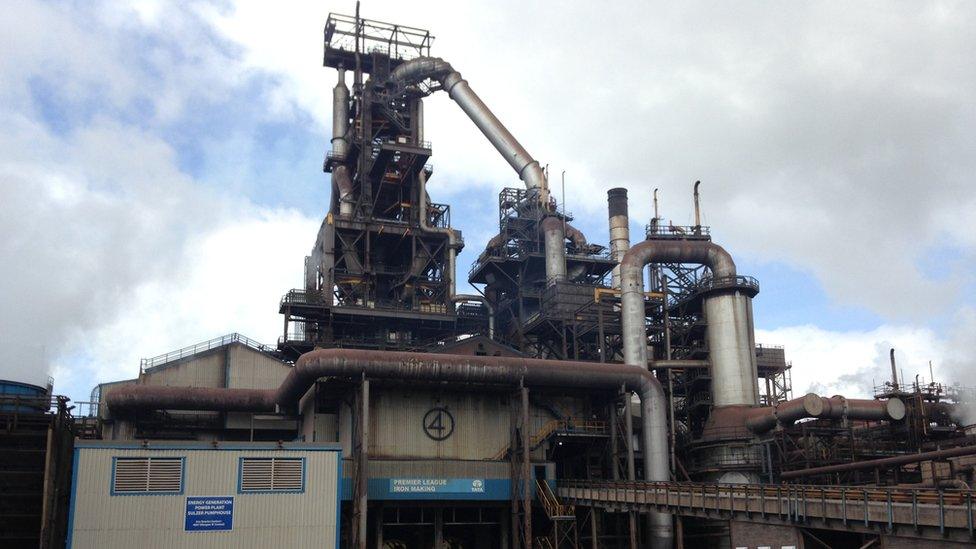
Five weeks since Tata Steel announced plans to sell its loss-making UK plants, it is still "business as usual" at the company's site in Port Talbot.
And while 4,000 workers there risk losing their jobs, many remain optimistic about the company's future.
Employees from the blast furnace control room, the hot strip mill and the Tata Steel Academy told BBC Wales about their concerns and hopes for the company and the steel making industry.

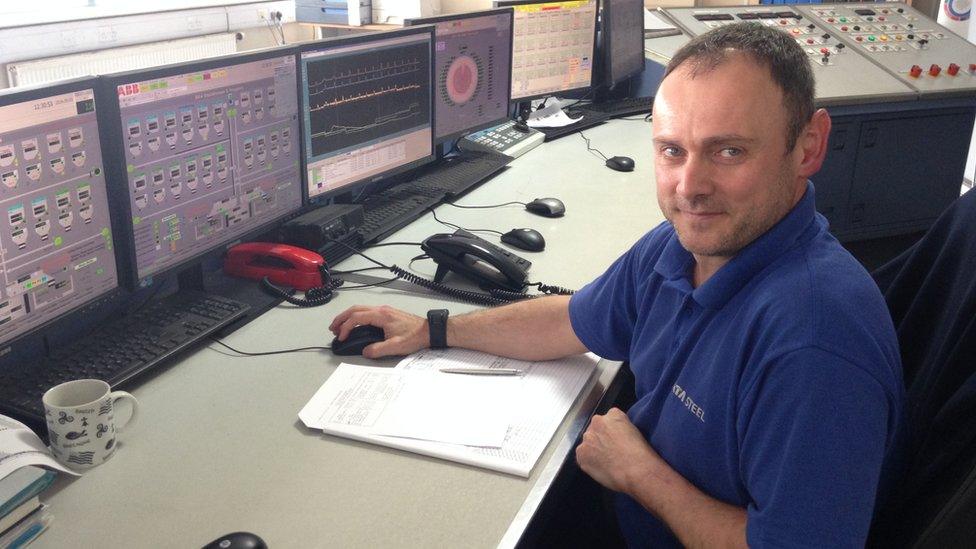
Stephane Ollivier, 46, blast furnace senior operator
"I'm in charge of looking after the blast furnaces, making sure all the control parameters are in place and that safety is being monitored in case any pre-emptive action is needed.
"It's not nice to be in the situation we're in. The only thing we can do is carry on, doing the best job we can, to make steel as efficiently and effectively as possible.
"I feel there's more pressure within the job now. There's a real focus placed on quality - that's our main priority. So the current situation not only has an external impact but an internal one too.
"My son applied for an apprenticeship but he was too young at the time. Now he's joined the Navy and it does make me think it was better not to start in the industry at this particular time.
"That said, if we have a buy out, there's years and years of steel making left in this site.
"It's a major industry and I would like to see it remain for future generations."
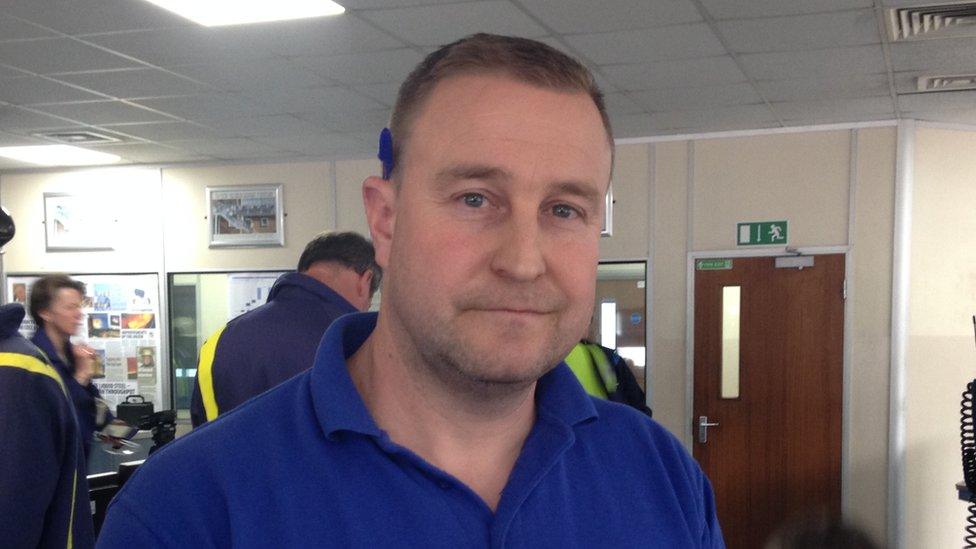
John Brennan, 42, blast furnace process coordinator
"I oversee the whole process of the blast furnaces - from the raw material going in, to when it comes out.
"It's a concerning time for us. I have worked here since I was 16 years old and fresh out of school so it's what I've always known.
"With the current climate, like Chinese steel being dumped and high energy costs, we're trying to battle against it.
"We're all quite positive and upbeat. It would be a massive shame should anything happen. It would hit the whole community really - not only in Port Talbot but right across south Wales. I have two children aged nine and seven so obviously it's a worry for all the family.
"I would like to see a level playing field with regards to energy costs. That could come by way of the government putting some money in or buying a stake."
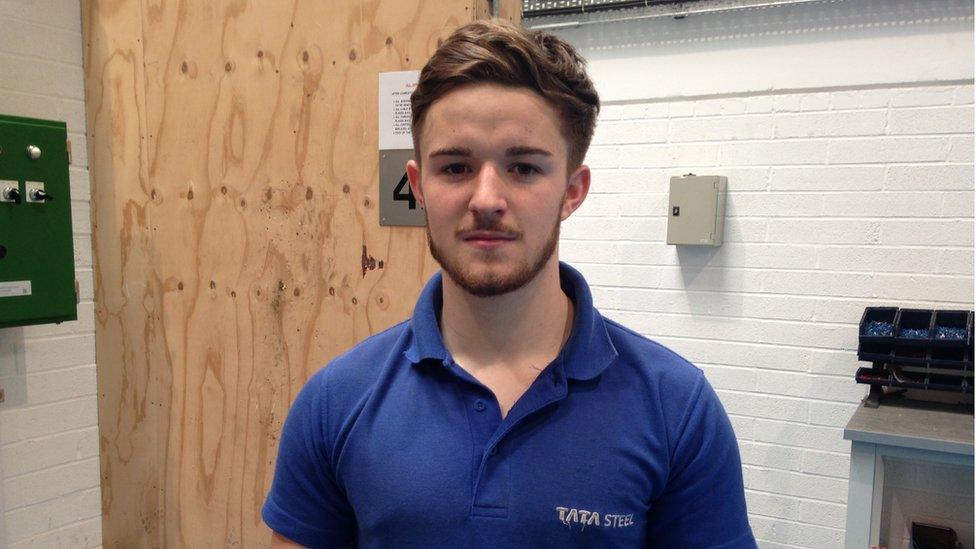
Jacob Flynn, 20, fourth year apprentice
"I came straight out of school and into this job. It's been really beneficial for me. I have learnt a lot about the trade and have never had to worry about money.
"The current situation is quite difficult but it's still looking positive as the company is still taking on apprentices.
"The main thing for me when I finish in August is to find a job. The guys in my department said there's one waiting for me so it's still looking promising at the moment."
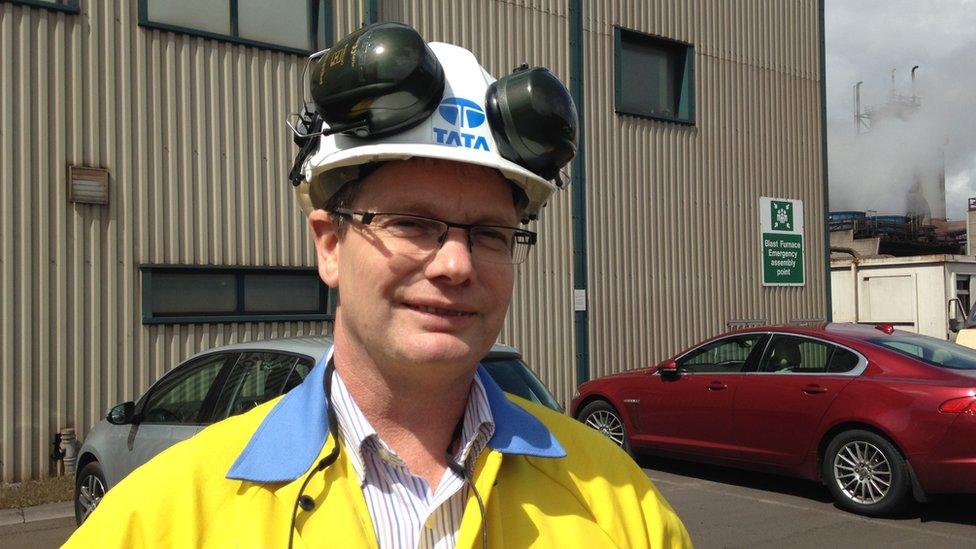
Peter Toms, senior project manager
"I'm involved in project coordination and development. I also deal with university liaisons, forming stronger links with them to improve employability of their students but also to help us enhance our products.
"It is business as usual at the moment. There is nothing different on the site today than the day Tata made its announcement. If we take our foot of the pedal our recovery plan we have enacted won't work.
"I want the industry to continue in south Wales and the UK as a whole. I believe Tata should remain a UK-wide operation and personally don't want to see it split up. We need a steel manufacturing base in the UK, it's critical for our economy.
"I have worked here for 34 years. I was an apprentice, then a graduate. I'm second generation and want to see that continue for future generations.
"This business is not an old industry. It's full of young, innovative people and it has a promising future."
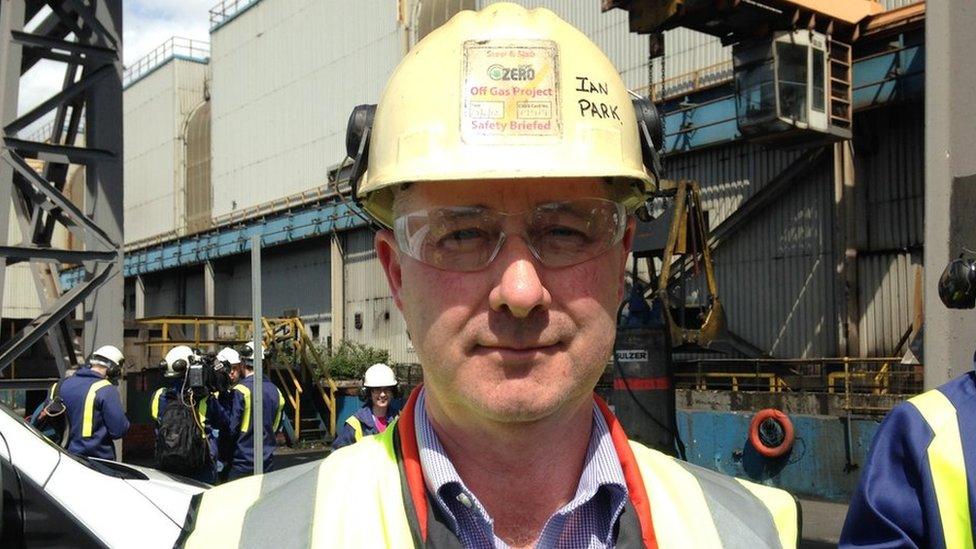
Ian Park, hot strip mill engineer
"It's not the first time I've been in this situation. I used to work at Ravenscraig which closed in the 90s, although I managed to leave before it shut down. Steel making is everything I've known for 36 years.
"Tata employs people right throughout the community, from those in charge at the top down to the workers. A lot of ordinary people would be out of work, it would be devastating.
"I would like to see the company, and the whole industry, survive and I think it has the potential to do so.
"We are breaking records - last year the hot strip mill produced more than three million tonnes and we are on track for April. The question is, what else can we do? We're going above and beyond."
- Published14 March 2016
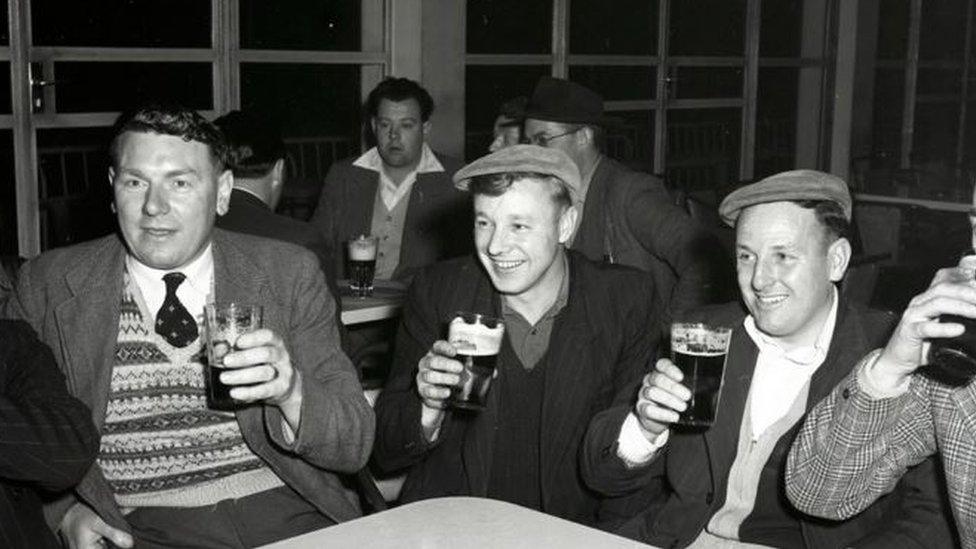
- Published18 March 2016
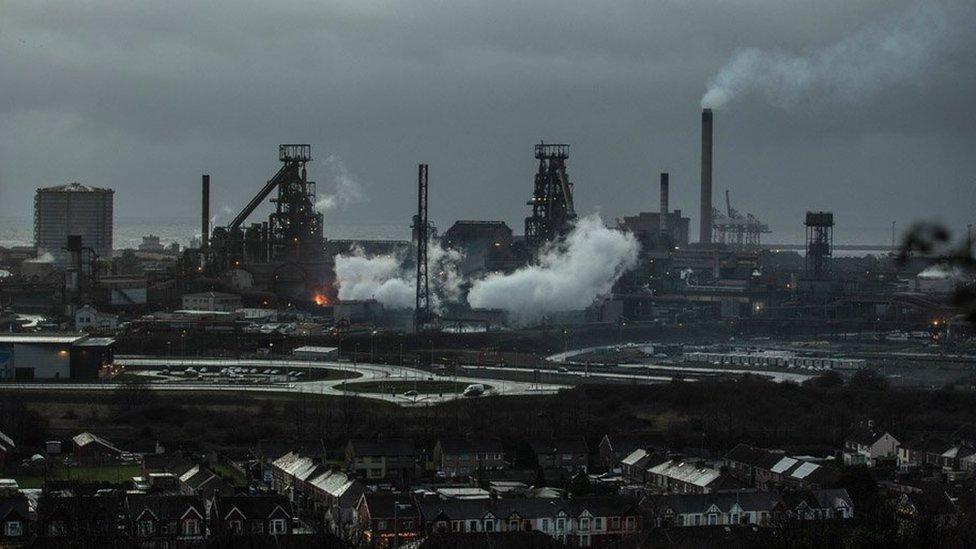
- Published30 March 2016
